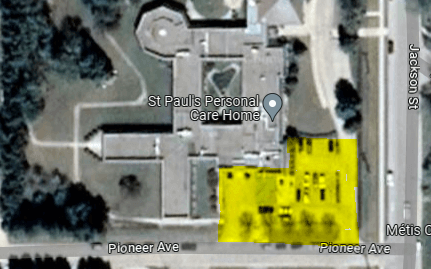Louis Riel Day
On Louis Riel Day and every day, Prairie Mountain Health recognizes that we provide health services on the homeland of the Red River Métis Nation and on the original lands of First Nations and Inuit Peoples. Manitoba’s health authorities respect that First Nations treaties were made on these territories, acknowledge harms and mistakes, and we dedicate ourselves to collaborate in partnership with First Nations, Inuit, and Métis peoples in the spirit of reconciliation.
As we pursue equitable and trusted pathways to care for all Manitobans, we thank health-care workers of Métis ancestry for your efforts and commitment as members of a team dedicated to excellent patient care. Shared Health encourages all who deliver health services on the original lands of First Nations and Inuit peoples, and on the homeland of the Métis Nation to recognize our ongoing obligation to the delivery of culturally safe care.
Health-care workers – and all Manitobans – are encouraged to take time to learn more about the contributions of Louis Riel and Métis peoples to our province.
Events in Prairie Mountain Health
Here are just a few events happening in our region for anyone to attend.
Events around the Province
- Friday, Feb. 16 from 11 a.m. to 2 p.m. – Join the Office of the Vice-President (Indigenous) to celebrate Louis Riel Day at University of Manitoba’s Marshall McLuhan Hall, 204-UMSU University Centre! This free event will include short remarks, music (a fiddle jam session!) and lunch.
- Feb. 16 – 25, Festival du Voyageur – Western Canada’s largest winter festival for the whole family with lots of entertainment including music, dancing, jigging, French-Canadian food, meeting historical characters, sculptures and much more.
- Monday, Feb. 19 from 11 a.m. to 3 p.m. – Experience the life of a Voyageur with a Marsh twist during Voyageur Day at Oak Hammock Marsh! Try their friendly Voyageur-themed contests, competitions and games. Participate in their “Concours des Meilleurs” and take home some great bragging rights!
- Sunday, Feb. 18 from 11 a.m. to 2 p.m. – The Richer Métis Local is hosting a Louis Riel Day Celebration at the Richer Young at Heart Hall located at 22 Dawson Rd. W in Richer, Manitoba that includes performers, kids activities as well as a hot meal of chili, bannock and hotdogs.
- Monday, Feb. 19 from 10 a.m. to 4 p.m. – Journée Louis Riel / Louis Riel Day at Le Musée de Saint-Boniface in collaboration with the Manitoba Métis Federation featuring free admission, free bannock, launch of Tracy Charette Fehr’s project “Honouring our Mothers” and more.
- Monday, Feb. 19 from 11 a.m. to 2 p.m. – Set your inner voyageur free at FortWhyte Alive! Spend Louis Riel Day playing voyageur games with FortWhyte volunteers, and enjoy some friendly competition between your family! Try your hand at tug-o-war, a voyageur relay, and other fun games.
- Monday, Feb. 19 from 11 a.m. to 4 p.m. – Celebrate Louis Riel Day at The Forks for a day filled with family-friendly festivities, like: lively dance parties and lessons for the whole family, engaging arts and crafts, specially crafted kid menus and mocktails, and, of course, winter activities, attractions, and amenities that are unique to The Forks.
- Monday, Feb. 19 – Freeze Frame Media Arts Centre for Young People will be presenting free movies for families at Dave Barber Cinematheque (100 Arthur Street) on Louis Riel Day.
- More Louis Riel Day events.
- Manitoba is once again offering free park entry for the entire month of February so Manitobans and visitors can take advantage of the many winter activities available in provincial parks.
- Manitobans are encouraged to get outside and explore fishing opportunities throughout the province during this year’s Winter Family Fishing Weekend. From Feb. 17 to Feb. 19, anglers may fish without a licence in the province, except in national parks where a federal angling licence is still required.

















